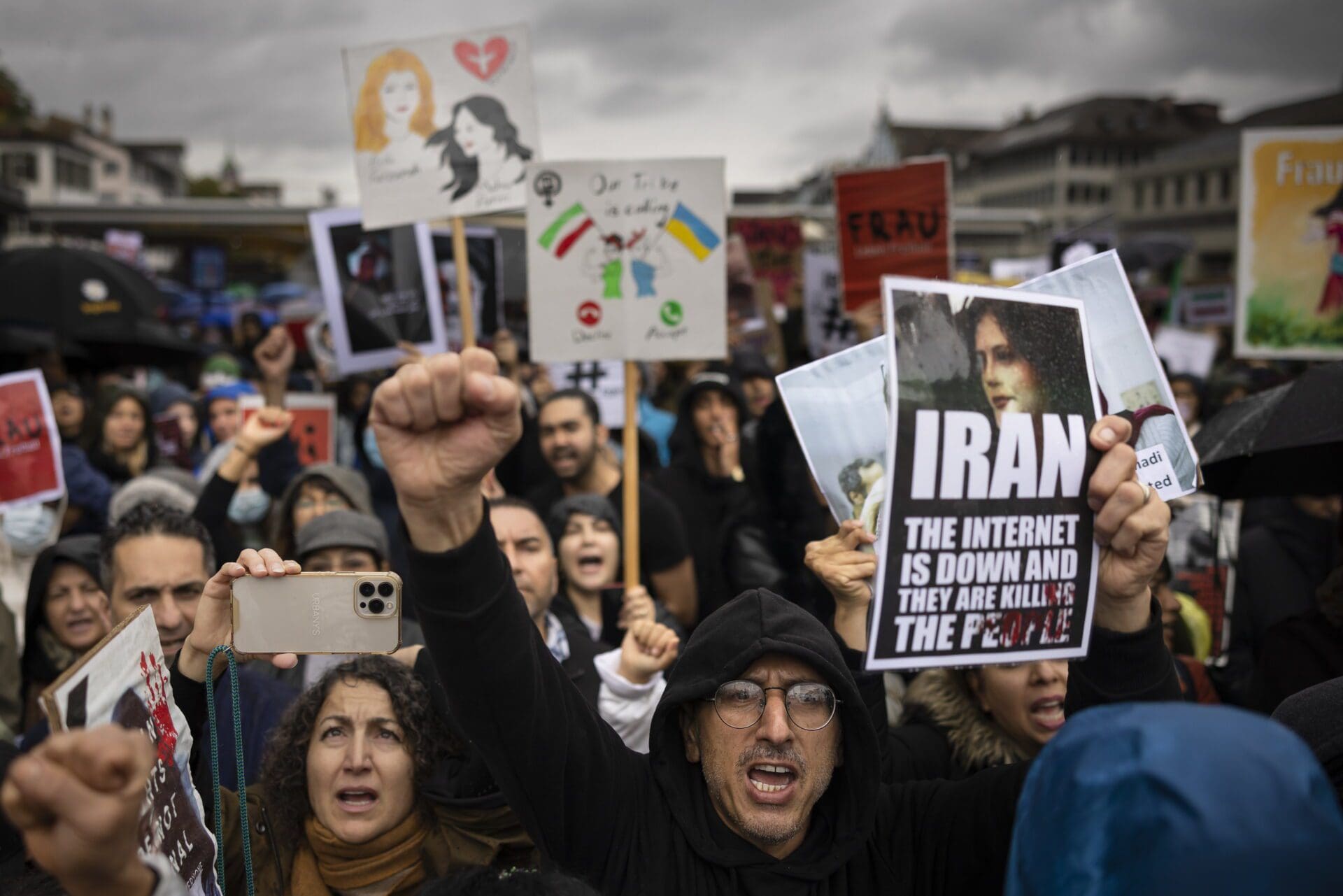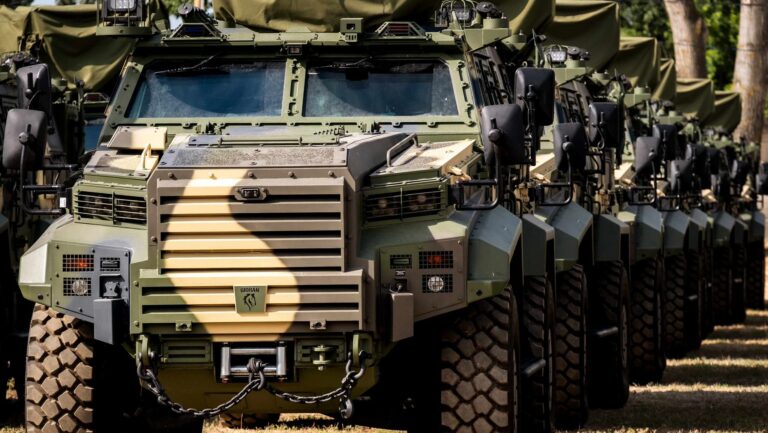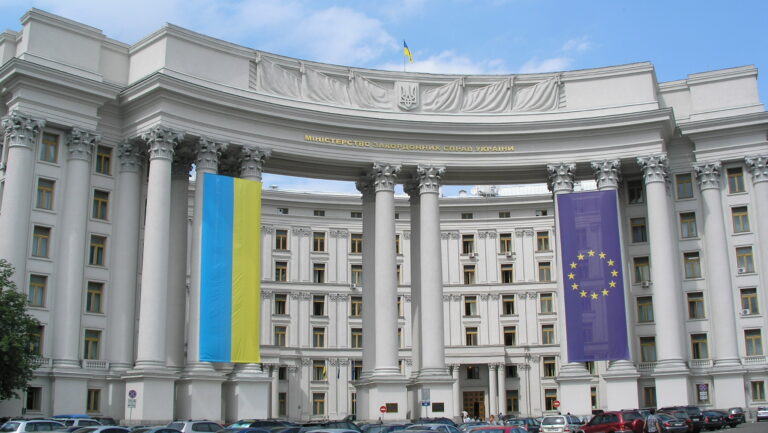It has been approximately three weeks since a twenty-two-year-old Iranian woman, Mahsa Amini, also known as Jina Amini or Zhina Amini, died in a Tehran hospital after she was arrested and beaten by religious morality police for not wearing the hijab in accordance with government standards. Within hours, women appeared in the streets, burning their hijabs and calling for justice. Days later, the protests spread and got larger. In towns and cities across Iran, schoolchildren have abandoned their classrooms to join the masses thronging the junctions and blocking streets. The brutality, however, did not cease.
On 20 September, Nika Shakarami, a sixteen-year-old, went missing in Tehran after telling a friend she was being chased by police. Her relatives were coerced into making false statements that she died falling from a roof. And now, reports are surfacing of the death of yet another teenage girl, Sarina Esmailzadeh, at the hands of the Iranian security forces.
Sixteen-year-old Sarina, who posted videos on YouTube, was killed when the security forces beat her with batons at a protest in Gohardasht in Alborz province on 23 September, according to Amnesty International. But the current acts if state violence are sadly nothing new—the people in the Islamic Republic of Iran have been oppressed ever since Shah Mohammad Pahlavi was ousted from power in 1979.
How Iran Became an Islamic Theocracy
Political experts hold that the removal of the Shah of Iran in 1979 resulted from his secularisation of the country, which included implementing policies such as the Family Protection Act of 1975. This precipitated anger among the Shi’ite clerics, since it granted women more rights within the family. The new legislation also lifted a number of juridical family matters from clerical jurisdiction and handed them to the newly created family courts for settlement.
Pahlavi’s removal, however, appears to have been something in the making by the West for years. With the hope that the Organization of the Petroleum Exporting Countries (OPEC) could again be under full control of Western bankers and financiers, US officials indirectly helped provide the way for the ayatollahs to re-establish sharia law in Iran. This was somewhat of a déjà vu—the CIA had Iranian Prime Minister Muhammad Mosaddeq deposed from power in 1953 after he tried to nationalise his nation’s oil. His deposition restored the young Shah Pahlavi to power, thereby giving the élite someone that they could manipulate in order to control Iran’s oil commerce.[1]
By the 1970s, the Shah was able to restructure Iran into a highly developed society through educational, land, and juridical reforms; the suffrage of women; and the creation of efficient hospitals, as well as legislating religious freedom. He also made his country one of the main global competitors of petroleum. When too he tried to nationalise his country’s oil, which would have meant that countries such as Great Britain and the United States would no longer dictate policy in Iran, he was ousted. After this, in November 1979, President Carter gave the Shah asylum in the United States for humanitarian reasons, while simultaneously helping Ayatollah Ruhollah Khomeini gain control of Iran.[2] This move inadvertently led to the 444-day Iranian hostage crisis, which propelled the Islamic theocracy to deter and suppress any dissent in the country.
What Not to Expect
On 3 October, US President Joe Biden released a statement saying that he is ‘concerned’ about the present situation in Iran and that his administration is doing everything possible to assist the protesters:
‘The United States is making it easier for Iranians to access the Internet, including through facilitating greater access to secure, outside platforms and services. The United States is also holding accountable Iranian officials and entities, such as the Morality Police, that are responsible for employing violence to suppress civil society. This week, the United States will be imposing further costs on perpetrators of violence against peaceful protestors. We will continue holding Iranian officials accountable and supporting the rights of Iranians to protest freely,’ the statement said.
Yet New York-based Iranian journalist and activist Masih Alinejad told BBC News that the US should be doing more to support women in Iran. She went so far as to say:
‘Shame on Biden. While Iranian women are getting killed in the street, he’s trying to get a deal with the Iranian regime.’
Washington, it seems, has decided to offer the courageous people of Iran, who are risking their lives in a bid for decent governance, as a sacrificial lamb, while favouring the mullahs over its Arab allies in the region. Biden’s double standard appears to be an appeasement to Russian President Vladimir Putin, and his new ally, Iran in an effort to keep the price of oil at a premium.
The Russian Federation has been the chief negotiator for the US with Iran, which is trying to restore the Joint Comprehensive Plan of Action (Iranian nuclear deal) that former President Donald Trump pulled out of. The irony is that US representatives are not even able to participate in the negotiations. According to Sayed Zahra, deputy editor of the Gulf’s Akhbar Al-Khaleej newspaper, by foregoing two demands, that of containing Iranian-backed terrorism in the region and its ballistic missile program,
‘Biden has practically decided to acquiesce in Iran and its entire terrorist expansion project in the Arab region…This is a dangerous development. The issue is not whether the agreement is signed or not…The matter is not limited to these concessions made by Biden; there is something more dangerous than this: Biden has completely abandoned the Arabs, allies and non-allies alike.’
The White House has thus far sustained Biden’s initial campaign position that a deal with Iran will make the world safer. With hat is happening in Iran, as it has been since the deposition of the Shah, how much safer would the world be knowing that the mullahs would have more of an upper hand to expand Iran’s terrorist tactics?
Hope for the Future
Amini’s death has invigorated a measure of outrage that has caused reverberations far beyond Iran’s borders. Videos spreading on social media show teenage schoolgirls marching in the streets without hijabs and university students demanding independence, freedom, and death to Iran’s Supreme Leader, Ali Khamenei. In the Islamic holy cities of Mashhad and Qom, as an Iranian friend told me, citizens have burnt images of Ayatollah Khomeini—the equivalent would be the image of Mao Zedong being set on flames in Beijing.
There are three types of generations in Iran. The one that took part in creating the 1979 revolution that ousted the Shah from power; the one who fought during the Iran-Iraq War (1980-1988), and the new generation, which is composed of about seventy per cent of the Iranian population who are under the age of thirty-five. This new generation has a cultural identity that is completely different from that of the first two generations: one that identifies itself with the West and has the courage to persevere.
Amini’s death sparked nationwide protests in reaction to the draconian forty-three-year rule of the Ayatollahs in Iran. So many others have been killed or arrested since. Last Friday in the south-east city of Zahedan, as many as ninety-one people were killed, including five children when state police opened fire. Despite the regime shutting down the internet across the country, videos of police violence continue to leak out, further compelling public anger.
While the world is caught up in the war in Ukraine, let us not forget what is happening in Iran. Let us hope that the sacrifices of those who have fought and continue to fight for their liberty from a draconian regime have not been in vain, for the people of Iran deserve better.
[1] Then a Chase officer, Archibald Roosevelt was cousin of Kermit Roosevelt, the CIA agent who engineered the 1953 coup d’état. David Rockefeller, Memoirs, New York, Random House, 2003, 363.
[2] Matt Wanderman, ‘Revealed: How President Carter supported the Iranian Revolution,’ Arutz Sheva (5 June 2016), http://www.israelnationalnews.com/News/News.aspx/213292, accessed 7 October 2022.








